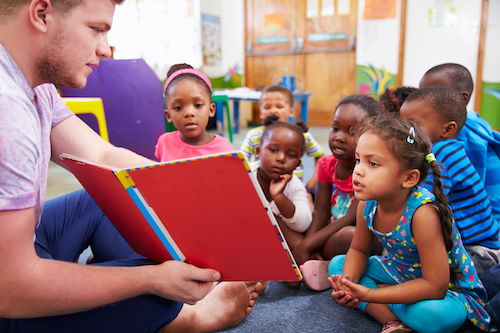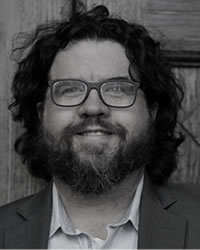
This article on the science of reading originally appeared on Purdue University’s site and is reposted here with permission.
Key points:
Purdue University has begun work to improve the reading abilities of K-12 students in Indiana by strengthening teacher preparation using science-based methods. The work is funded in part by a $1.5 million grant from Lilly Endowment Inc. awarded to Purdue in August as part of Lilly Endowment’s Advancing the Science of Reading in Indiana initiative, which launched in 2022.
The science of reading refers to a vast body of research that explores how children learn to read and includes explicit, systematic and cumulative instruction methods focused on phonics, phonemic awareness, fluency, vocabulary, comprehension, and writing and oral language. Purdue is one of 28 Indiana colleges and universities that received grants from Lilly Endowment to support efforts that integrate science of reading-aligned principles into teacher preparation programs.
From working with external consultants to diving deeper into the research on the science of reading to surveying former students about science of reading concepts, faculty across three campuses in the Purdue system — West Lafayette, Northwest and Fort Wayne — as well as two colleges, the College of Education and the College of Health and Human Sciences (HHS), are collaborating to bring together their diverse perspectives and elevate literacy teacher preparation at the university.
Six months in, the Purdue faculty have already made strides in their initial planning for revamping the curriculum. In early fall, the faculty gathered to review the results of a survey that would allow them to assess how prepared alumni and preservice teachers felt about literacy. Beyond the survey, the team met with external consultants and partnered with The Reading League Indiana to develop a common understanding of the science of reading and evaluate how this information would take shape in curriculum adjustments.
Purdue’s interdisciplinary approach is overseen by Jenna Rickus, vice provost for teaching and learning, and the grant is co-led by Christy Wessel Powell, associate professor of literacy education and the director of the Center for Literacy and Language Education and Research, and Catherine (Cammie) McBride, professor of human development and family science and HHS associate dean for research. Mary Ann Cahill, associate dean of professional programs and director of the School of Education and Counseling at Purdue Northwest, serves as the campus lead for Purdue Northwest, and Holly Hullinger-Sirken, clinical associate professor of elementary education, serves as the campus lead for Purdue Fort Wayne.
“We are grateful to Lilly Endowment and the state of Indiana for their proactive support for literacy education,” Wessel Powell said. “It’s vital to have these resources that we can put toward improving the ways that teachers are able to work with students and to know there is a long-term commitment toward these goals.”
The funds are being used toward faculty’s collaboration efforts to enrich their curriculum through science-based literacy methods in elementary education, special education and early childhood education. Their work spans five main goals:
- Refining science of reading content in the coursework of Purdue’s undergraduate education licensure programs.
- Creating stacked credentials for undergraduate and graduate students as well as offerings for current teachers.
- Creating an online repository of scientific research related to reading and writing.
- Providing professional development to faculty across all Purdue colleges, campuses and programs related to literacy.
- Making connections to state leadership by providing research-grounded resources on literacy.
Those working on the grant will continue to meet regularly in the spring to begin the process of restructuring and planning courses that will bolster the curriculum and better equip future teachers with an in-depth understanding of the science of reading. This spring, the team will also begin developing professional development workshops for all Purdue faculty involved in teaching reading and writing across Purdue campuses as well as begin to build an online repository of resources to which faculty can refer.
“Ultimately, what we hope is that the courses that are being used to train the teachers are better aligned with the science of reading and that the teachers make use of all their different skills-building to be better teachers and help the kids to read better,” McBride said.
Hullinger-Sirken noted that now is an important time to look at literacy, not only because the education landscape looks different since the COVID-19 pandemic but also to accommodate the various needs of Indiana children.
“There has been a lot of attribution to post-COVID, but we also know that we have a very diverse population of students in the state of Indiana, and we know that when it comes to literacy, there’s a lot of different components that play into how proficient a student can be with their literacy skills,” Hullinger-Sirken said. “It is our responsibility as educators and professionals to ensure that no student lacks any of those skills and that we are doing our due diligence to provide them with that. I think this grant comes at an opportune time because it gives us some of the resources and the attention to really focus on that specific goal.”
To meet the needs of Indiana’s diverse population, the grant has also brought in faculty such as associate professor Trish Morita-Mullaney, who specializes in English language learning, to focus on what is distinct about language and literacy learning for English language learners.
The grant’s 33 faculty members have experienced the cross-disciplinary element of Purdue’s work, which many noted has proved fruitful in allowing them to share their knowledge and pool resources.
“I really think the early childhood component; the developmental part; and the speech, language, and hearing sciences faculty and what they can contribute just make this a more inclusive and ultimately more useful approach to teacher training,” McBride said.
Grace Pigozzi, assistant professor of elementary and early literacy, explained it can be easy in higher education to get into a day-to-day routine and become siloed, so the opportunity of the grant allowed faculty to see the ways the Purdue University system works together and can make a difference in literacy education.
“For this opportunity to exist, we had to figure out who we were as an entity, and for me, that’s been the most amazing part,” Pigozzi said. “Now, knowing everyone and being able to have these funds to guide us as we’re doing this very difficult work is a kind of solace.”
As part of the grant, Chenell Loudermill, clinical professor in the Department of Speech, Language, and Hearing Sciences, organizes outside consultants to fulfill the professional development component. She noted this offers faculty on the grant the opportunity to not only learn from each other but also think outside the box by exploring expertise outside of the university in areas such as psychology, education, communication sciences and disorders, neuroscience, and more.
“The interdisciplinary approach taken by Purdue University is what is needed to move the teaching of reading and writing forward in Indiana,” Loudermill said.
The faculty shared that having Purdue contribute to Lilly’s initiative to advance the science of reading will allow the university to increase its impact on Indiana children and teachers. This funding by Lilly Endowment and Purdue’s work within it complement a statewide effort by the Indiana Department of Education to improve reading achievement in K-12 schools by helping current teachers implement science of reading-aligned principles in their classrooms.
“We’re a land-grant institution, so this is right in our wheelhouse,” Wessel Powell said. “I can see that we have so many opportunities for synergy and to expand how we affect the entire state.”
- SEO Powered Content & PR Distribution. Get Amplified Today.
- PlatoData.Network Vertical Generative Ai. Empower Yourself. Access Here.
- PlatoAiStream. Web3 Intelligence. Knowledge Amplified. Access Here.
- PlatoESG. Carbon, CleanTech, Energy, Environment, Solar, Waste Management. Access Here.
- PlatoHealth. Biotech and Clinical Trials Intelligence. Access Here.
- Source: https://www.eschoolnews.com/innovative-teaching/2024/03/14/purdue-begins-work-to-advance-science-of-reading/
- :has
- :is
- :not
- 20
- 2022
- 28
- 33
- 5
- 6
- 9
- a
- abilities
- Able
- About
- accommodate
- achievement
- across
- adjustments
- advance
- advancing
- affect
- aligned
- All
- allow
- allowed
- Allowing
- already
- also
- amazing
- an
- and
- ann
- any
- approach
- ARE
- areas
- article
- AS
- assess
- Assistant
- Associate
- At
- attention
- AUGUST
- author
- awarded
- awareness
- BE
- because
- become
- been
- begin
- begins
- begun
- being
- Better
- Beyond
- body
- bolster
- Box
- bring
- brought
- build
- but
- by
- Campus
- CAN
- Children
- Clinical
- collaborating
- collaboration
- Colleges
- Colleges and Universities
- comes
- commitment
- Common
- Communication
- Communications
- Complement
- component
- components
- concepts
- Connections
- consultants
- content
- continue
- contribute
- contributors
- courses
- COVID-19
- COVID-19 pandemic
- Credentials
- Current
- Curriculum
- day-to-day
- deeper
- Department
- description
- develop
- developing
- Development
- developmental
- difference
- different
- difficult
- diligence
- Director
- disorders
- distinct
- diverse
- diverse perspectives
- diving
- doing
- due
- each
- Early
- easy
- Education
- educators
- effort
- efforts
- element
- elementary
- ELEVATE
- endowment
- English
- enrich
- ensure
- Entire
- entity
- equip
- evaluate
- everyone
- exist
- Expand
- experienced
- expertise
- explained
- explores
- Exploring
- external
- Fall
- family
- felt
- Figure
- five
- Focus
- focused
- For
- Former
- Fort
- Forward
- from
- fruitful
- Fulfill
- funded
- funding
- funds
- future
- gathered
- get
- gives
- goal
- Goals
- graduate
- grant
- grants
- grateful
- guide
- had
- Have
- having
- Health
- hearing
- help
- helping
- here
- higher
- Higher education
- hope
- How
- HTML
- http
- HTTPS
- human
- i
- Impact
- implement
- important
- improve
- improving
- in
- in-depth
- includes
- Inclusive
- Increase
- Indiana
- information
- initial
- Initiative
- Institution
- integrate
- into
- involved
- IT
- ITS
- jpeg
- just
- kids
- Kind
- Know
- Knowing
- knowledge
- lacks
- landscape
- language
- launched
- lead
- Leadership
- League
- LEARN
- learners
- learning
- literacy
- long-term
- Look
- LOOKS
- Lot
- made
- Main
- make
- many
- me
- Media
- Meet
- Members
- met
- methods
- million
- months
- more
- most
- move
- needed
- needs
- Neuroscience
- no
- note
- noted
- now
- of
- Offerings
- Offers
- on
- ONE
- online
- only
- opportune
- opportunities
- Opportunity
- oral
- organizes
- Other
- our
- out
- outside
- pandemic
- part
- partnered
- permission
- perspectives
- planning
- plato
- Plato Data Intelligence
- PlatoData
- Play
- points
- pool
- population
- Posts
- Powell
- preparation
- prepared
- principles
- Proactive
- process
- professional
- professionals
- Professor
- Programs
- proved
- provide
- providing
- Psychology
- put
- Read
- Reading
- really
- received
- refer
- refers
- regularly
- related
- repository
- research
- Resources
- responsibility
- restructuring
- Results
- review
- right
- routine
- Said
- School
- Schools
- Science
- SCIENCES
- scientific
- Scientific Research
- see
- senior
- serves
- Shape
- Share
- shared
- she
- siloed
- since
- site
- skills
- So
- some
- spans
- special
- specializes
- specific
- speech
- spring
- stacked
- State
- strengthening
- strides
- Student
- Students
- such
- support
- Survey
- synergy
- system
- Take
- taken
- teacher
- teachers
- Teaching
- team
- that
- The
- The State
- their
- Them
- There.
- These
- they
- Think
- this
- those
- three
- Through
- time
- to
- together
- toward
- Train
- Training
- two
- Ultimately
- understanding
- Universities
- university
- us
- use
- used
- useful
- using
- various
- Vast
- very
- very diverse
- vice
- vital
- ways
- we
- WELL
- were
- West
- What
- What is
- when
- which
- WHO
- will
- with
- within
- Work
- working
- works
- Workshops
- would
- writing
- zephyrnet










